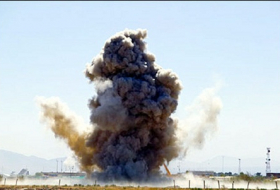The judges, who have been vocal in their condemnation of state governments who have repeatedly failed to address the issue, said people had the constitutional right to live free of pollution.
The supreme court bench, made up of justices Arun Mishra and Deepak Gupta, gave the governments six weeks to explain why they should not be held accountable “for their failure in discharging their duties”.
The governments of Punjab, Haryana, Delhi and Uttar Pradesh were highlighted as those that should be responsible for compensating the millions living in Delhi’s toxic smog.
“We have become a laughing stock,” said Mishra. “The government cannot provide clean air and water to the citizens in its capital city. What is the point of all this development? What is the point of being a world power?”
Mishra added that pollution had become so bad that citizens in the worst-affected areas would rather be “finished off with explosives” than suffer a slow, painful death from pollution-related diseases such as cancer.
This month Delhi has endured one of the worst periods of pollution on record, with a thick brown smog limiting visibility and causing burning eyes. The air quality index, which measures airborne particles, has regularly reached more than 10 times higher than the level deemed healthy by the World Health Organization. The supreme court said simply the “right to life of humans is being endangered” by the pollution crisis, and demanded action.
The supreme court has recently made rulings to try to get state governments to act, including issuing an order to stop all crop stubble burning, which in states such as Punjab and Haryana remains rampant and is a huge contributor to Delhi’s pollution. The court judges expressed outrage that this ruling appeared to have been entirely ignored, with crop burning shown to have in fact increased.
Mishra, directly addressing the solicitor general, Tushar Mehta, said: “Should this be tolerated? Is this not worst than internal war? Why are people in this gas chamber?”
The Delhi government and the Central Pollution Control Board have also been asked to draw up plans for two “pollution towers” – in effect giant air purifiers – in the capital and consider whether they would be effective. This week, Delhi authorities began using anti-smog guns, which spray water into the air to try to reduce pollutants, and a proposal on how to introduce hydrogen-based technology, as an alternative to polluting fuels, is also being explored.
More about: #India
















































